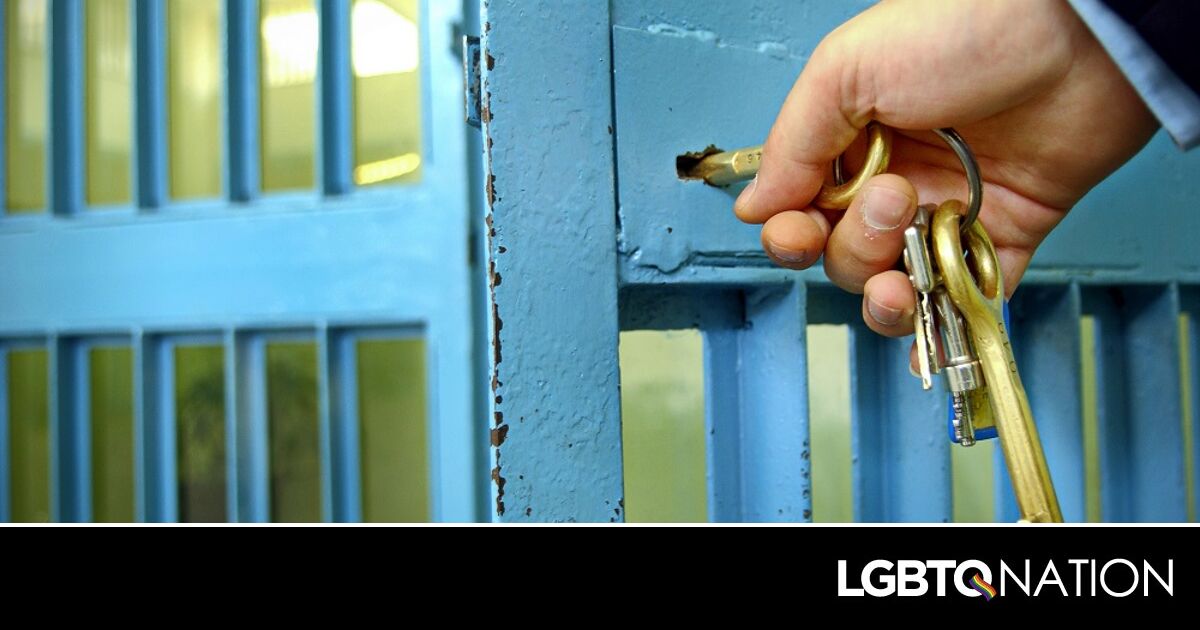
President Joe Biden’s administration has agreed that Georgia may cover the cost of its captives’ gender-affirming treatments in a victory for transgender prisoners.
A 55-year-old trans female inmate in Georgia, who was identified in court papers as “Jane Doe,” filed a lawsuit against the state’s Department of Corrections for allegedly denying her access to gender-affirming surgery, claiming that the process is “blanket banned.” She also claimed that the division had denied her access to hormone therapy, the ability to purchase items from women’s commissaries, “decades of violent abuse” by male inmates and guards, and solitary confinement.
She claimed that doing so would worsen her gender dysphoria, violate her Eighth Amendment legal rights against “cruel and unusual punishment,” and violate the state Rehabilitation Act and the Americans with Disabilities Act.
According to The Atlanta Journal-Constitution, U.S. Department of Justice officials recently filed a statement of interest in her case, largely agreeing with her argument. These officials included the United States Attorney for the Northern District of Georgia.
According to a statement from Assistant Attorney General Kristen Clarke of the DOJ’s Civil Rights Division, people with gender dysphoria should be able to access all the protections provided by the Americans with Disabilities Act. According to the U.S. Constitution, those who are incarcerated in jails and prisons must receive the necessary medical care, treatment, and accommodations to treat their serious medical conditions.
The federal government’s assertion of interest “affirms the common-sense principle that prison administrators cannot apply blanket bans to bypass the judgments of medical providers when it comes to specific patient care,” according to inmate defense attorney D. Dangaran.
A brief in the case was also submitted by the American Civil Liberties Union’s Georgia chapter. They added, “People in Georgia’s prisons continue to experience extensive abuse and harassment,” to their brief description of the “widespread failings of Georgia prisons.” The experience of Jane Doe is a tragic example in place.
Doe has identified as a woman since early childhood and began living in that gender in 1988. At the facility where she has been incarcerated since 1993, she was diagnosed with gender dysphoria by a number of health professionals.
She started hormone replacement therapy (HRT) in 2015, but according to her lawsuit, corrections officers shaved her head bald as her hair started to grow out and seized the clothing she had customized to look more feminine. In 2017 and 2019, she attempted suicide. Her worsening gender distress has led her to engage in serious self-harm and to continue having suicidal thoughts. She has continued to be imprisoned alone, and in July 2022, she made an attempt at self-castration.
According to the Prison Policy Initiative, roughly 5,000 trans people are detained in state prisons. According to the National Center for Transgender Equality, the majority of prisoners are people of color, and 35% of them report being harassed by various individuals and prison staff.
Help is available if you or someone you know is struggling or in crisis. Call, text, or chat at 988lifeline.org. Trans people work on the Trans Lifeline (1-877-565-8860), which does not contact law enforcement. The Trevor Project offers young people a safe, judgment-free place to talk via text (678-678) or phone (call 866-488-7386). All three resources offer assistance in English and Spanish.




